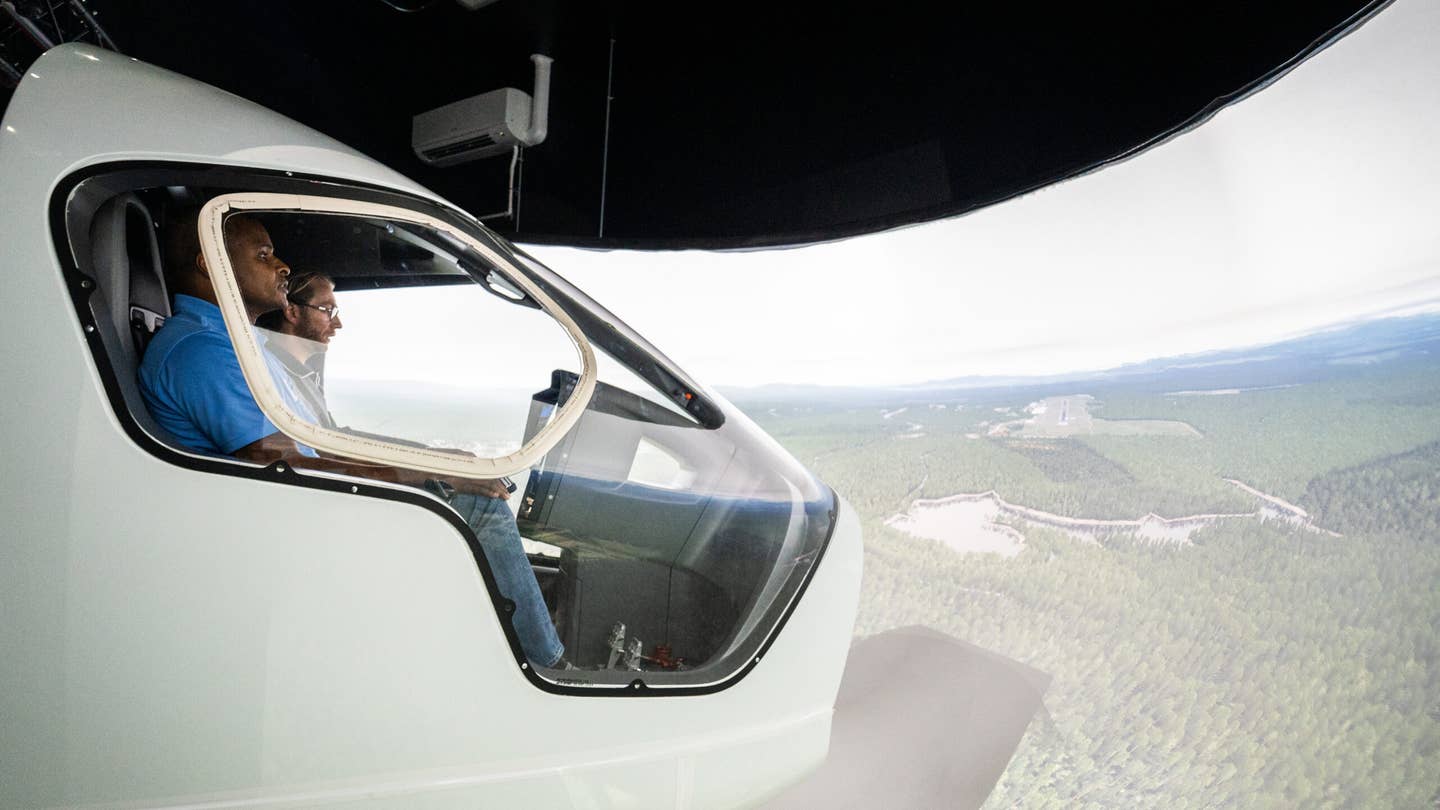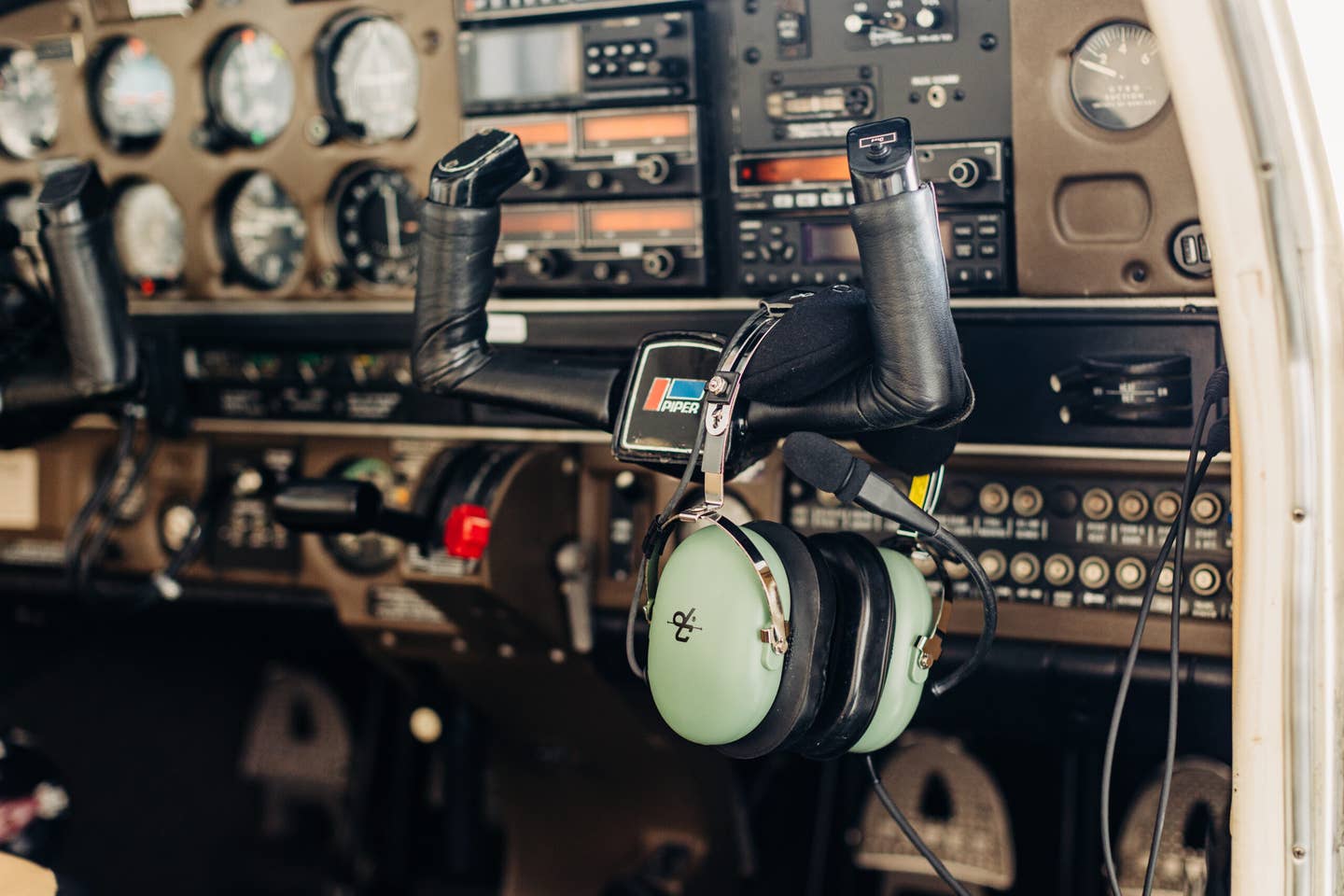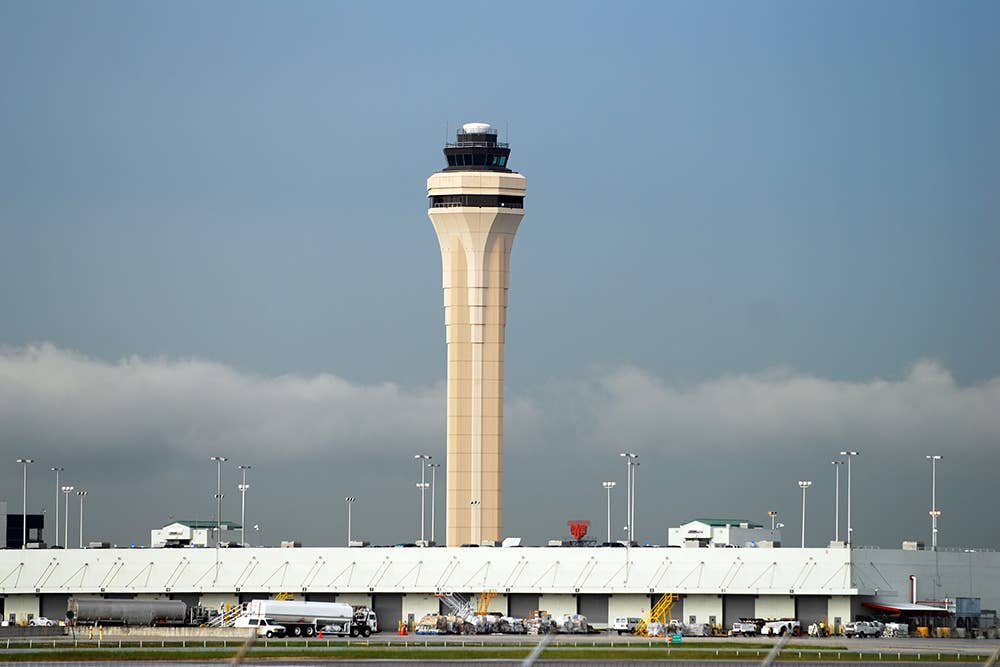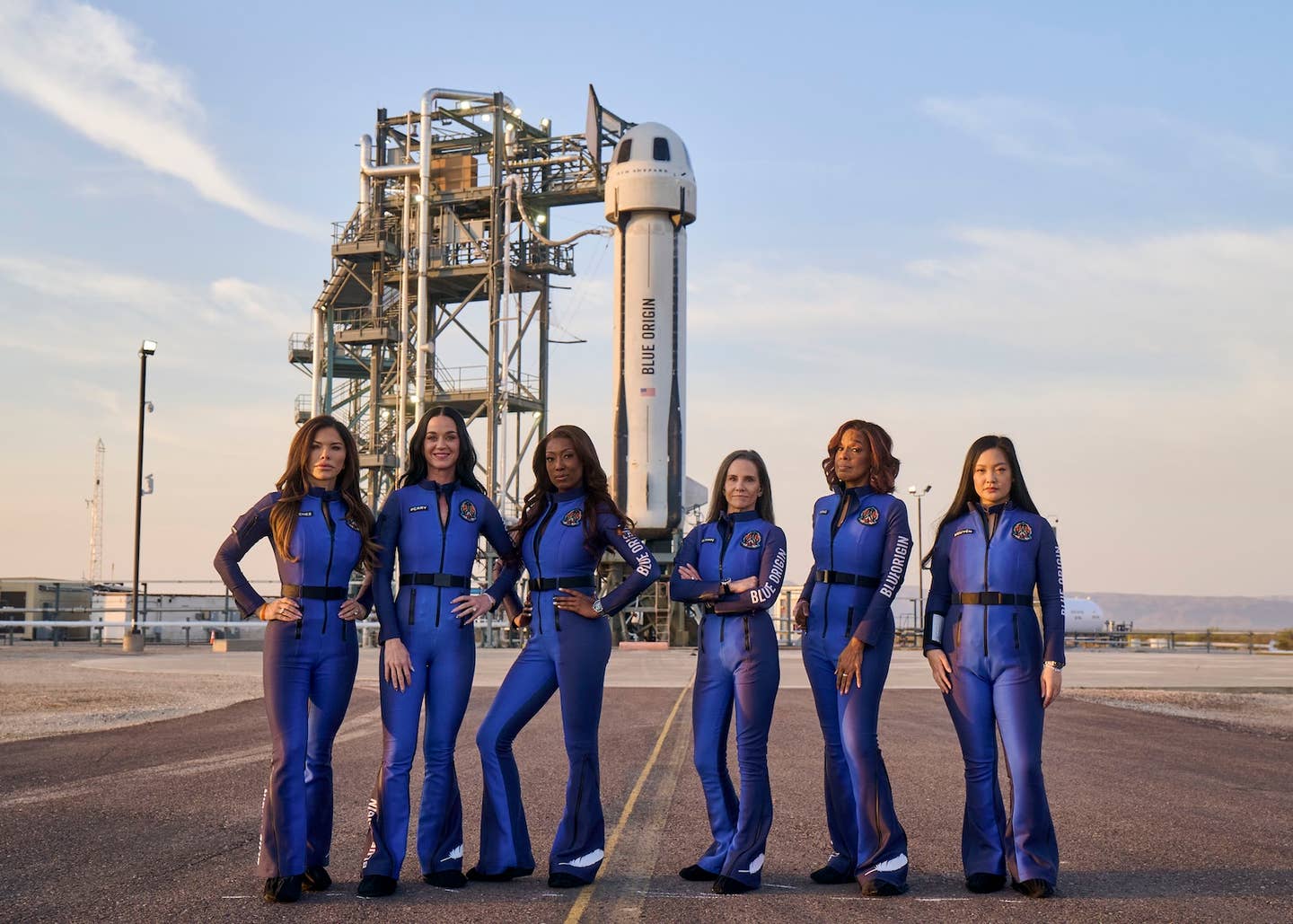Beta Walks First Customer Through Electric Aircraft Pilot Curriculum
The manufacturer will need to obtain the FAA’s sign-off before customers can begin training on its CX300.

Pilots from Unither take a spin in Beta’s CX300 electric aircraft simulator. [Courtesy: Beta Technologies]
Electric aircraft manufacturer Beta Technologies is preparing its Part 135 customers to begin training pilots on its conventional takeoff and landing (CTOL) model.
The company on Monday said it completed the first pilot training program for its Alia CTOL (also called the CX300) with a customer, United Therapeutics (UT), and its subsidiary, Unither Bioelectronics. Beta took company leaders and flight operations executives through its full CX300 pilot training syllabus, which the company intends to use during future in-aircraft training once approved by the FAA.
The move represents a step toward finalizing a CX300 training product to accompany initial aircraft deliveries to customers. Beta expects to begin deliveries next year following type certification.
UT was Beta’s first customer, placing an order for the company’s electric vertical takeoff and landing (eVTOL) Alia model and electric charging stations. The firm is also an investor, having provided Beta with $52 million to get off the ground and a $48 million contract to build Alia, which it helped design. Martine Rothblatt, founder and CEO of UT and a member of the Beta board, was the first noncompany pilot to fly the aircraft.
When Beta unveiled the CX300 in 2023, UT was one of its first customers alongside Bristow Group and Air New Zealand. The company intends to use the two aircraft to quickly transport medical cargo, such as 3D-printed organs, at what Beta claims will be a fraction of the cost of conventional designs.
Both models are fully electric and designed to carry up to 1,000 pounds of cargo, or as many as five passengers, in a space of 200 cubic feet, cruising at 135 knots. The Alia has an expected range of 250 nm, while the more robust CX300 has demonstrated a range of 336 nm during test flights.
Beta has already begun installing a nationwide network of electric charging stations for its aircraft to tap into and is working with FBO networks such as Signature Aviation and Atlantic Aviation to electrify their terminals.
But one major step remaining for the company, and all electric aircraft manufacturers, is developing a pilot training curriculum.
Beta’s tailored CX300 syllabus, which the company said it has been refining for years, must still be approved by an FAA Flight Standards District Office. Walking a customer through the process, though, suggests that the firm is anticipating the green light sooner rather than later.
Over three days, Beta took a team comprising seasoned Unither helicopter and fixed-wing pilots through a three-step curriculum covering ground training requirements, familiarization with the aircraft and its systems, and operational employment for air ambulance missions.
The process began with overviews of the aircraft’s manuals, aerodynamics, concept of operations, limitations, and requirements, followed by reviews of its electric propulsion technology, fly-by-wire flight controls, and other atypical systems.
Capping off the campaign was a series of simulator rehearsals, during which Unither pilots completed practical exercises, performance planning, and preflight and ground operations. These culminated in two simulated missions—one IFR, one VFR—along routes the company intends to fly with the aircraft.
“The tailored syllabus from this event will be used with future in-aircraft training utilizing Beta’s dual-seat trainer configuration,” Beta said.
Beta so far has trained eight of its own pilots to fly the CX300, in addition to Rothblatt and pilots from the FAA, U.S. Air Force, Army, and customers UPS and Bristow. This year, it completed several “real-world” missions during two CX300 deployments for the Air Force under its contract with AFWERX, the department’s innovation arm.
More recently, Beta received a lift when the FAA authorized it to begin training pilots on its Alia eVTOL. The company tells FLYING it will eventually walk UT and Unither pilots through a separate curriculum for that model.
Like this story? We think you'll also like the Future of FLYING newsletter sent every Thursday afternoon. Sign up now.

Sign-up for newsletters & special offers!
Get the latest FLYING stories & special offers delivered directly to your inbox






